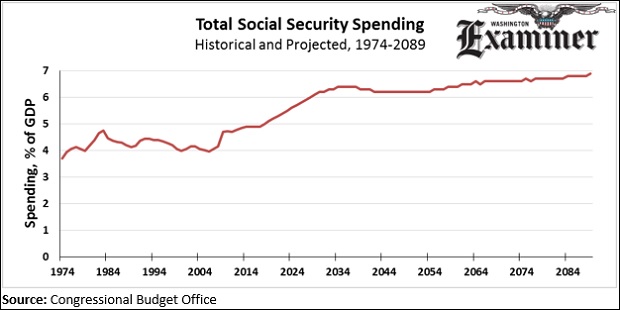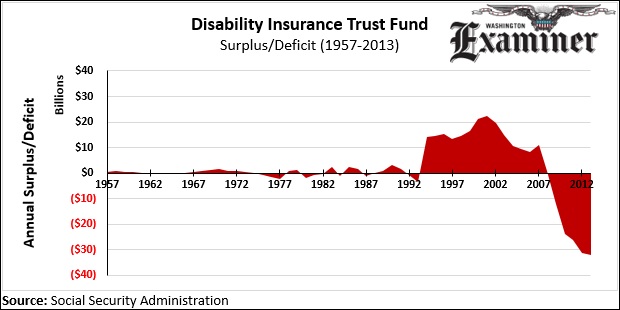If it’s left unreformed, over 10 million recipients of Social Security’s disability insurance will have their benefits arbitrarily cut by 20 percent near the end of 2016.
Many Democrats want to sweep the problem under the rug with an accounting gimmick that would merge the disability trust fund with the general Social Security trust fund, which, on paper, isn’t expected to be depleted until 2034. But House Republicans passed a rule Tuesday to protect the broader Social Security program from being raided.
In 1994, the payroll tax rate was reallocated between Social Security’s two trust funds to avoid depletion of the disability insurance fund, but another reallocation would ignore Social Security’s long-term funding issues.

“The problem is not that disability needs a bigger share of the overall payroll tax than it now has, but that Social Security as a whole faces a financing imbalance that needs to be corrected,” Charles Blahous, a Trustee of the Social Security and Medicare Trust Funds, told the Washington Examiner. “The single most irresponsible response to the pending [disability insurance] trust fund depletion would be to do nothing other than paper it over with a reallocation of funds, delaying meaningful corrective action as long as possible.”
The House rule merely prohibits a tax rate reallocation from being the only action taken. Reallocation could, and perhaps should, be a part of larger reform. As the six Trustees wrote in 2014, “Lawmakers may consider responding to the impending [Disability Insurance] Trust Fund reserve depletion, as they did in 1994, solely by reallocating the payroll tax rate between [Old-Age and Survivors Insurance] and DI. Such a response might serve to delay DI reforms and much needed financial corrections for OASDI as a whole. However, enactment of a more permanent solution could include a tax reallocation in the short run.”
“These trust funds aren’t real, they don’t have any implications for the Treasury and for the actual amount that taxpayers have to pay,” Thomas Saving, a Social Security and Medicare Trustee from 2000 to 2007, told the Examiner. “None of this other stuff has any effect on the amount taxpayers are on the hook for.”
Reallocation ignores the root issue: The number of disability recipients is growing quickly, up 26 percent since the recession started. “We can just avoid that by saying, ‘It’s really not getting more expensive because now we have this other money that doesn’t really exist,’ ” says Saving.

Democrats were quick to oppose the House rule. Sen. Elizabeth Warren, D-Mass., tweeted that “The GOP is inventing a Social Security crisis that will threaten benefits for millions & put our most vulnerable at risk.” Los Angeles Times columnist Michael Hiltzik called the rule an “attack on Social Security.”
Saving said “there’s no doubt” Democrats are overreacting to the rule. Blahous simply said “no” when asked if the House rule was an “attack on Social Security.”
“The House rule doesn’t require that Congress do the most responsible and ambitious thing — comprehensively fix Social Security’s finances. It merely precludes the single most irresponsible thing: a tax reallocation further delaying responsible action without any financing improvements whatsoever,” Blahous said.
With just under two years until disability payments are arbitrarily cut by 20 percent, there is no doubt Social Security’s finances are in trouble. Democrats seem to be in denial of Social Security’s problems and intent on launching political attacks. Republicans have acknowledged the coming crisis for disability recipients and seem committed to fixing it.
